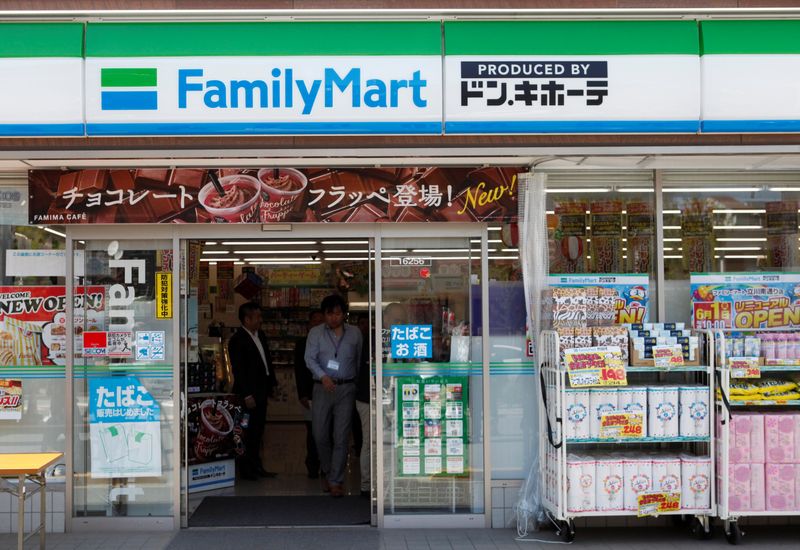By Katya Golubkova
TOKYO (Reuters) -Japanese trading house Itochu on Wednesday posted 438.4 billion yen ($2.9 billion) in net profit for the six months to end-September, up 6% from a year earlier, on non-resource items including food and the FamilyMart convenience store chain.
Itochu kept its net profit forecast for the fiscal year unchanged at 880 billion yen, of which 24% or 213 billion yen is projected from food, textiles and the 8th division to where FamilyMart belongs, overtaking the profit’s largest contributor, the metals and minerals division with a 200 billion yen forecast.
Over the past couple of years, Japanese trading houses have been expanding in the retail business, from food to textiles and convenience stores, as diversified portfolios help them to mitigate risks from commodity prices fluctuations.
From chicken used in crispy and juicy Famichiki fried chicken ubiquitous to Itochu-run over 16,000 FamilyMart stores across Japan, the trading house also provides them bananas, eggs and socks, among other items of daily use.
In the latest push in October, Marubeni began selling salmon from a farm operated near mount Fuji by its Norwegian partner, adding to the seafood business where its rivals Mitsubishi and Mitsui are also present.
Mitsubishi owns Norway-based Cermaq, one of the world’s leading salmon farmers, and is also exploring salmon land farming in Japan, while Mitsui is a shareholder of the world’s top shrimp farming and processing firms in Ecuador and Vietnam.
Mitsui owns a 2% stake in Seven and i Holdings, parent of Japan’s top convenience store chain 7-Eleven and a $47-billion acquisition target of Canada’s Alimentation Couche-Tard, and Mitsubishi co-owns third-ranked Lawson.
Neither Itochu, nor Mitsubishi or Mitsui are sole suppliers for convenience store chains they are shareholders of but around-the-corner stores iconic to Japan help the trading houses to monetise on their food and apparel businesses.
($1 = 153.9900 yen)

